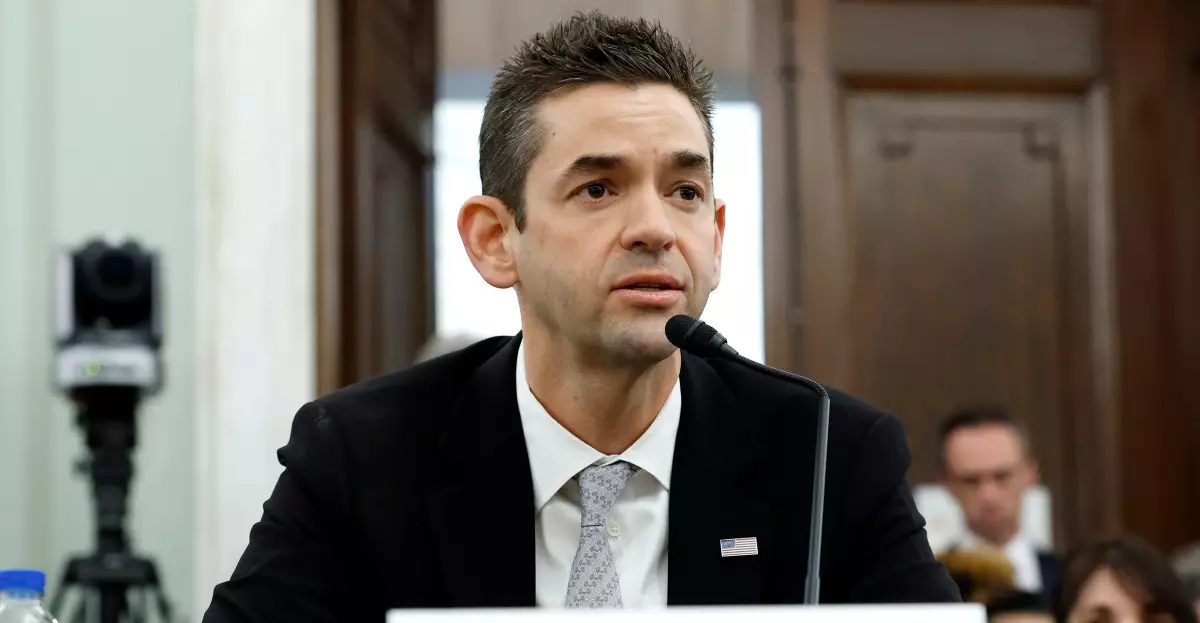The nomination of Jared Isaacman to helm NASA has become an intricate case study in the intersection of politics and space exploration. Not merely a candidacy rejected due to inexperience or lack of vision, Isaacman’s potential leadership position was scuttled due to his financial affiliations with the Democratic Party. This scenario raises fundamental questions about the underlying motivations and parameters set by political figures in shaping the future of NASA, America’s pioneering agency for space exploration. As reports suggest that Trump himself was directly involved in pulling Isaacman’s nomination after discovering his monetary support for Democrats, it unveils the rigid political climate enveloping not just NASA, but the broader aerospace sector.
The Influence of Political Contributions
Political donations serve as a significant fulcrum in the broader game of American politics. For Isaacman, the billionaire founder of Shift4 Payments and a notable figure in the commercial space flight industry, backing politicians from across the aisle might seem like a strategic move to build alliances. However, in the current polarized environment, such affiliations can have severe repercussions. By supporting Democrats, Isaacman inadvertently placed himself at odds with the Trump administration’s tightrope act of maintaining an “America First” ethos. This leads one to ponder whether political donations should be a qualifying factor for leadership positions, especially in specialized fields like space exploration, where scientific acumen should arguably take precedence.
The Broader Implications for NASA’s Future
This peculiar back-and-forth around Isaacman’s nomination comes at a time when NASA itself is at a crossroads, especially given the administration’s proposed budget cuts, which could diminish the agency’s capabilities by nearly a quarter. In a venture traditionally bolstered by bipartisan support, the drastic reductions in funding signal a deeper threat to scientific and exploratory initiative. Critics like The Planetary Society have characterized the budget cuts as catastrophic, endangering NASA’s most innovative and productive programs. The agency could find itself struggling under a shadow not merely of leadership failure, but also of strategic misalignment with national policy objectives.
The Ripple Effect on Aspirations and Innovation
Isaacman’s previous involvement in commercial space flights, including the groundbreaking Inspiration4 mission and the Polaris Dawn venture, highlights his considerable commitment to advancing space tourism and exploration. Without his NASA nomination, one must wonder what this means for the potential fusion of commercial space ventures with federal missions. The commercial space industry offers promise for innovation and expansion; however, the stifling political environment could derail this momentum. The withdrawal of support for capable individuals like Isaacman underscores how political entanglements can stifle strategic advancement in a sector that thrives on creativity and collaboration.
Looking Ahead: What’s Next for NASA?
As the political landscape shifts and a new nominee is expected from the Trump administration, uncertainty looms over NASA’s path forward. Will the next appointment be a politically palatable choice devoid of visionary leadership? Perhaps, but this scenario does bring to light a more disturbing trend: The prioritization of political loyalty over scientific excellence in steering agencies that require not just knowledge but also a bold vision for the future. While the space race of yesteryears was inspired by rivalry and exploration, today’s efforts may be clouded by political affiliations rather than authentic ambition. The real question remains whether NASA can navigate through these turbulent waters to reclaim its mantle as the custodian of humanity’s quest for discovery.

